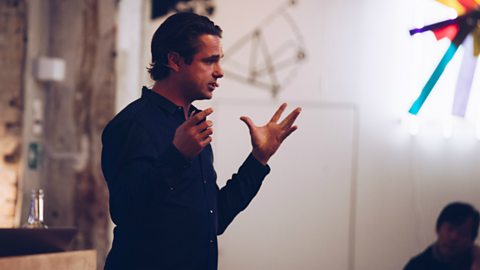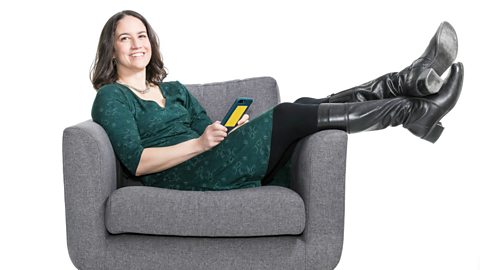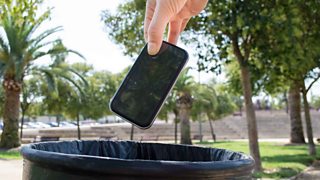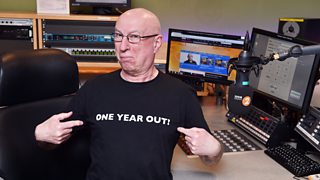Say goodbye to your phone: Essential tips for a digital detox
15 June 2018
All this week The Chris Evans Breakfast Show has been looking at ways of spending less time on our devices and applying our attention to other things - whether that be our families, our hobbies or our peace of mind.
Communications technology has radically changed the world. The laptop, smartphone and tablet devices have allowed us to access information (and people) across the globe all the time, and this is a wonderful thing. But it's not a great idea to be in touch with technology all the time. In fact, it's speculated that too much screentime could actually change your brain.
Dr Jack Lewis explains the problem:

Is too much screen time affecting our brains?
Neuroscientist Dr Jack Lewis tells us how technology is physically changing our brains.
Here are some tips for a successful digital detox:
Put your phone on silent
The first step is the easiest. Just turn your phone to silent so that it can't interrupt while you're going about your business. You can always return calls in your own time.
Disable notifications
If your device is constantly buzzing in your pocket, you're going to want to check it, if only to make sure there's no emergency you need to deal with. Over time, this can cause stress and keep you on edge. Why not trial disabling notifications for everything non-essential, just keeping them for the ways your nearest and dearest will contact you if they absolutely need you right away.
Create rituals
This is a great tip. If you find yourself idly checking your screen all the time, try creating spaces in your day where your device is firmly tucked away. And give yourself a moment to check periodically - once an hour, perhaps - so it's more like taking a mental break.
Rachel Macy Stafford, author of Hands Free Mama suggests that it's a good idea to create 'device-free' times at home, where you and the most important people in your life can converse without distraction. She also suggests that all greetings and goodbyes should be phone free, to avoid the phenomenon known as phubbing, in which people snub the person in front of them in favour of some minor dalliance with their device.

Digital Detox: Top tips for putting down your phone and engaging with your kids
Rachel Macy Stafford, author of 'Hands Free Mama', on a parenting 'life-tech' balance.
Charge your devices in the hall
If your devices are within hands-reach of the spaces in which you relax, they're too much of a temptation. So try creating a space that is not the bedroom, the sofa or the bathroom in which you can plug them in and leave them.
Reinforce the things you want to do
If you find yourself wondering why you've no time in the day for your hobby - whether that's reading or gardening or watching movies - try leaving reminders in obvious places to create some device-free space to devote to the things that make you happy. Leave an enticing book (or a pack of garden seeds) somewhere where you'll spot it in passing. Make those things the temptation that your device is currently.
Create dream space
Sometimes it's good to not be mentally active. If you're on a bus or waiting for a train, rather than checking your phone, why not just let your mind wander. Think about nothing, or think about your day, plan an activity. It will feel better to let yourself work things out slowly than to let your device dictate what you think about.

Fancy a digital detox? Dr Jack Lewis shares his top tips...
The neuroscientist gives advice on managing your screen time.
Check your device deliberately
If you've set aside time to check for messages and read social media, you can enjoy it rather than worrying about where all the time goes. But give yourself a short window of time to catch up, then put the device down and move on.
Let other people’s habits act as a reminder
If you watch how other people use their devices, you can spot habits that you're trying to avoid - repetitive checking, antisocial phubbing - and work out how you're doing. The idea is your device should be an asset to your life, not the dominating presence.
Remind yourself what you're detoxing for
Catherine Price, author of How To Break Up With Your Phone suggests that a successful digital detox is a matter of attitude and remembering what we really want to be doing with our lives.

Catherine Price explains her step-by-step guide on spending less time on your phone
Chris speaks to Catherine, author of 'How To Break Up With Your Phone'.
And she also notes that her attention span has increased after easing back on her phone use.
So, is it time we all gave a digital detox a try?
Like us on Facebook, on Instagram at bbcradio2, or follow us on Twitter @BBCRadio2













